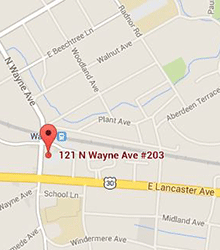If you say something will “take-a-backseat-to-no-one” you’re admitting that it’s not lacking in confidence. Trusting your dental implant is like that for missing or damaged tooth replacement.
In fact, speaking of “taking-a-back-seat,” dental implants are equally trustworthy for replacing your back molars.
A high-function zone
There are common functions that a lost or missing tooth affects. Eating, and more specifically, chewing your food, would rank high on the list of functions.
Losing your back or rear molar has a significant impact on your lifestyle. You should also be concerned about the ongoing risk of bone loss in your jaw if you are merely content to adjust your lifestyle to accommodate a missing tooth in that quadrant of your mouth.
Bone loss can lead to greater function loss. This is especially true if your adjoining teeth begin to shift because you delay tooth replacement.
Beware of more rapid bone atrophy
Preserving the bone tissue where you’ve lost a tooth is vital. The quality of available bone can determine the capability or effectiveness of your dental implant.
Jawbone atrophy is known to occur more rapidly in the back portion of your mouth following tooth loss. This is due to thinner bone tissue in that region of your mouth.
A thorough examination of your jaw and targeted x-rays will determine if dental implants can thrive in your available bone tissue. This makes it all the more important to schedule a consultation as soon as possible following your tooth loss.
Back in business
You have options to replace a missing back/rear tooth if bone loss has already occurred. A bone graft can be used to supplement the tissue.
Typically, bone grafts are obtained from your own tissue. Or an outside and compatible source can be used as well.
This necessary step will lengthen the time of your treatment. But it’s worthwhile given the significant functional and aesthetic benefits of a dental implant.
Avoid bone loss and the need for a bone graft. Schedule a consultation within a few days of your tooth loss and allow us to determine if dental implant treatment is your best tooth replacement solution.

